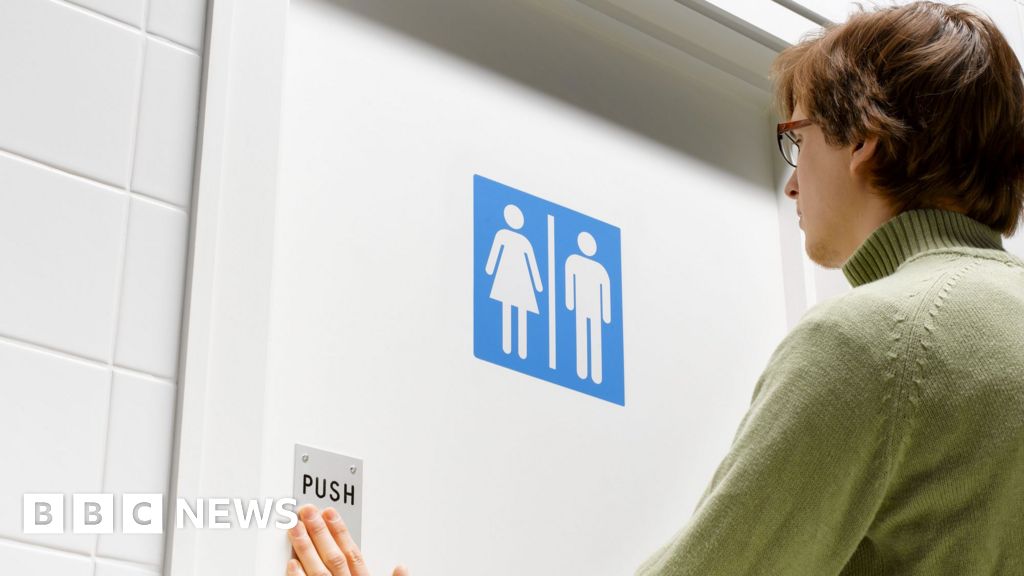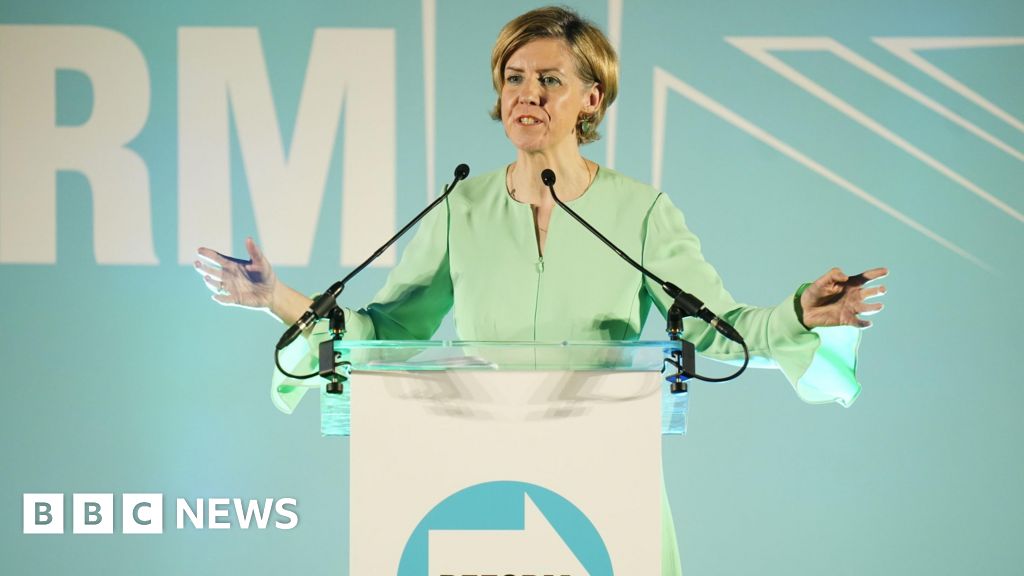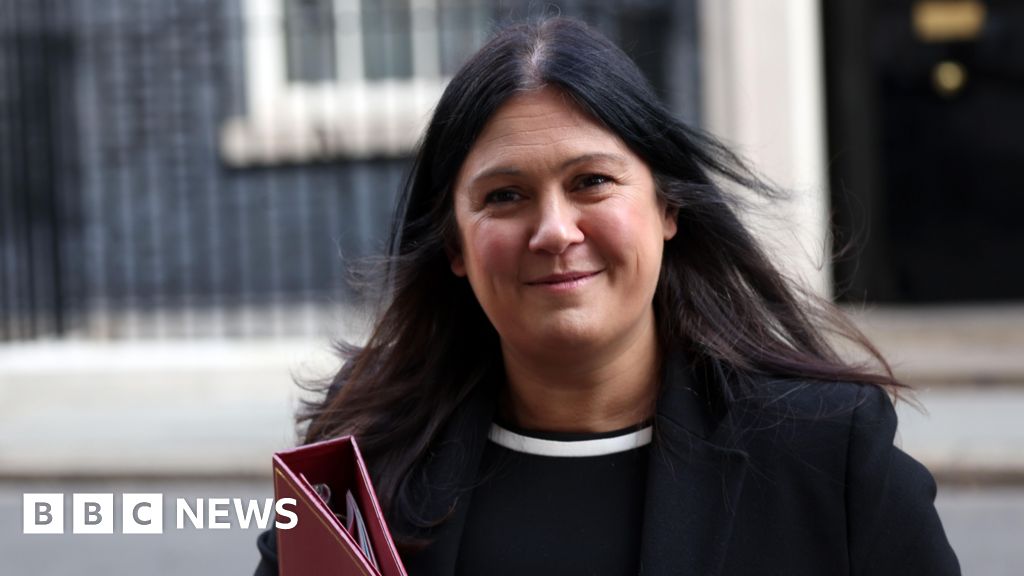ARTICLE AD BOX
By Francesca Gillett
BBC News
Watch: PM confirms Plan B will stay, as England sees fastest growth in Covid cases
England's current Plan B rules will continue for now, Boris Johnson has confirmed - as new figures show a record one in 15 people had Covid on New Year's Eve.
In an update to MPs, the prime minister said the Covid measures will be reviewed again by 26 January.
The rules cannot be scrapped completely because hospital admissions are rising rapidly, he added.
Omicron continues to spread widely, with some hospitals struggling to cope.
A record 3.7 million people in the UK had Covid in the week to New Year's Eve - an extra million more than the week before - according to estimates from the Office for National Statistics.
This equates to one in 15 people in England, one in 20 people in Scotland and Wales, and one in 25 in Northern Ireland.
The estimate was highest for London, where one in 10 people were believed to have Covid - although the ONS said there were some "early signs" cases were no longer increasing in the capital.
The figures are part of the ONS weekly infection survey which tracks the pandemic by sampling the population. It does not include people in hospitals and care homes.
Making an announcement in the House of Commons earlier, Mr Johnson said the government would not be bringing in new measures.
"In response to the latest data the cabinet agreed this morning that we should stick with Plan B for another three weeks with a further review before the regulations expire on 26 January," he said.
"I know some might therefore ask whether this means we can now do away with measures altogether, but I'm sorry to report that hospital admissions are rising rapidly, doubling around every nine days, with already more than 15,000 Covid patients in hospital in England alone.
"We're experiencing the fastest growth in Covid cases we've ever known," he said - citing the record 218,724 daily confirmed cases on Tuesday, although that included some delayed reporting from over the festive period.
And Mr Johnson warned case rates are now rising rapidly among older and more vulnerable people - with infections doubling every week in over-60s.
More than 20 English NHS trusts have declared critical incidents - according to Downing Street - and some non-urgent surgery is being cancelled due to staff shortages.
One ambulance service is asking people with suspected strokes or heart attacks to get relatives or friends to drive them to hospital because of staff shortages.
Front-line NHS services and businesses have told the BBC how they are coping with staff being off work with Covid, with one doctor at a surgery in Cambridgeshire saying people are "falling like flies".
The UK announced a further 194,747 cases on Wednesday, as well as 334 deaths within 28 days of a positive test - although the death figures include a backlog from NHS England between 1 and 4 January. A total of 17,276 people are in UK hospitals with Covid, the figures show.
Other changes to Covid measures have also been announced:
- Double vaccinated people will no longer need to take pre-departure tests when coming to England from 04:00 GMT on Friday. They will also not have to self-isolate while waiting for their day two test
- People who test positive with a lateral flow test do not need to order a follow-up PCR test if they do not have symptoms. Anyone who has symptoms will still need to take a PCR test regardless, and anyone who tests positive with any test must self-isolate. The change comes into force in England from 11 January, in Northern Ireland immediately and in Scotland and Wales from Thursday.
Watch: Labour's Angela Rayner gives her response to the PM's statement on Plan B
Under England's Plan B measures, people are told to continue working from home wherever they can, wear face coverings on public transport and in public places, and show their vaccination status to get into nightclubs and large events.
Scotland, Wales and Northern Ireland are in charge of their own Covid rules - and all brought in stricter measures after Christmas.
In Scotland, pubs and bars are operating with table service only, and people are being asked to limit social contact to two other households, while in Wales gatherings are limited to six people in public premises, large events are not allowed and nightclubs are closed. In Northern Ireland, nightclubs are also closed and a maximum of six people are allowed at a table in hospitality venues.
Scotland also cut its self-isolation period to seven days for people who record two negative lateral flow tests, which brings it in line with the rest of the UK.
In a Commons statement on Wednesday, Education Secretary Nadhim Zahawi said about 8% of school staff were absent at the end of 2021, and that was "likely to rise" as Omicron continues to spread.
Covid measures taken in schools, such as mandatory face coverings for secondary school children, were part of the government's plan to do "everything in our power to keep children in our classrooms", he said.
A Department for Education study has found that in 123 schools where face coverings had been in use in the autumn term, there were fewer children absent because of Covid than in schools that were not using masks, Mr Zahawi added.
He accepted face coverings could be "distracting" and "not great" for children's wellbeing or education, and said he had commissioned further research into the negative impact of them.

 3 years ago
42
3 years ago
42








 English (US) ·
English (US) ·